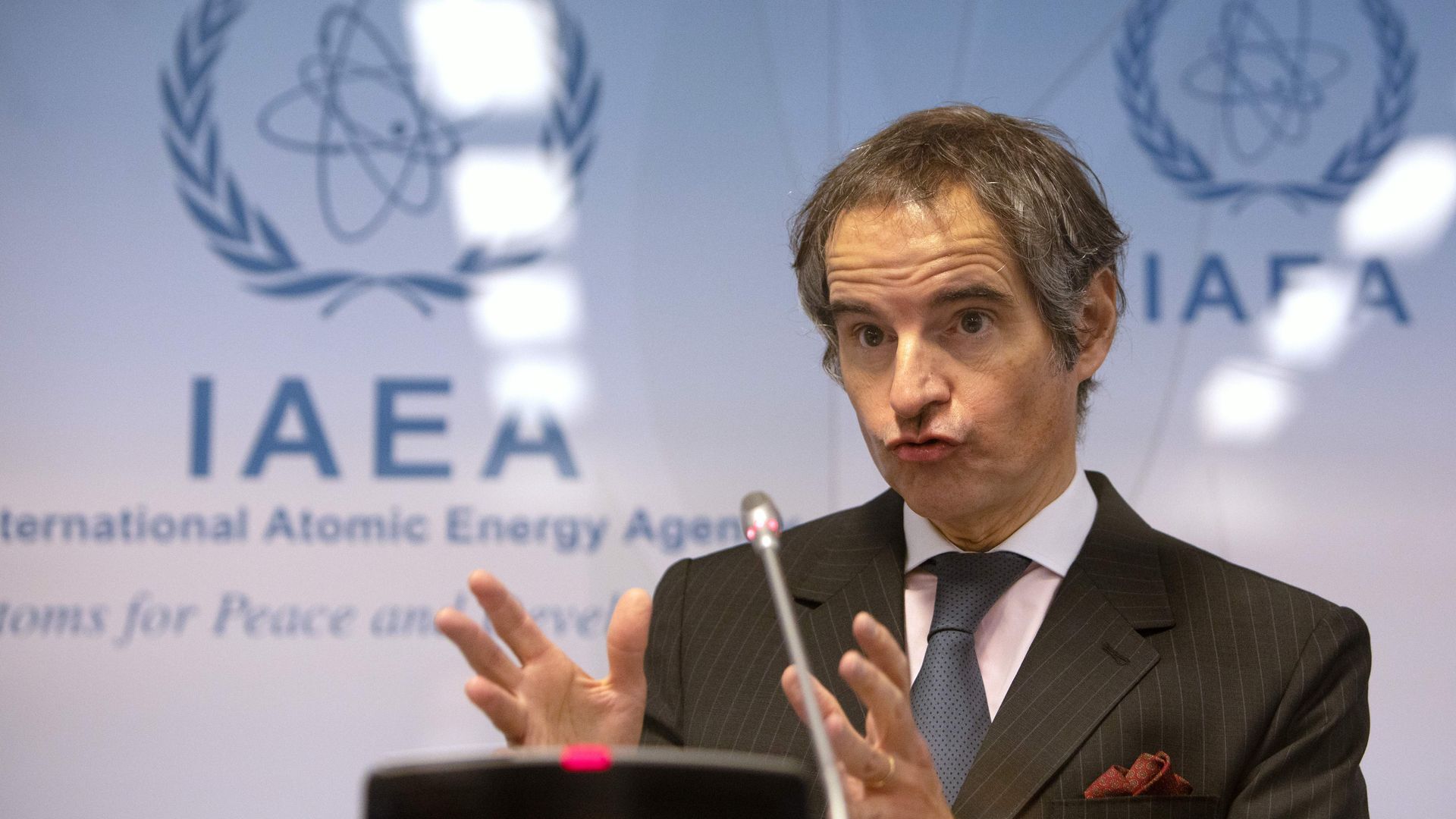U.S., Europeans scrap plan to censure Iran at UN nuclear watchdog meeting
Add Axios as your preferred source to
see more of our stories on Google.

IAEA Director General Rafael Grossi at Thursday's meeting. Photo: Alex Halada/AFP via Getty
France, Germany and the U.K. have backed off a plan to censure Iran for its lack of cooperation with the International Atomic Energy Agency (IAEA) at the UN nuclear watchdog's quarterly meeting in Vienna, European diplomats tell me.
Why it matters: The U.S. and the three European signatories of the Iran nuclear deal (known as the E3) are attempting to revive diplomacy with Tehran, while also responding to Iran's continual breaches of the deal. But after the plan to censure Iran emerged, Iran reacted angrily and rejected a proposal for nuclear talks.
Behind the scenes: Over the last 24 hours, the U.S. and the E3 held consultations about what to do about the resolution, which would have criticized Iran for curtailing the access of UN inspectors to several nuclear sites and failing to provide answers to the IAEA about uranium particles found at two undeclared sites.
The backstory: Iran had threatened to curtail inspections more drastically before reaching a deal with the IAEA last month to allow inspectors to continue the bulk of their work for another three months. The Iranians threatened to cancel that agreement if the Europeans moved ahead with their resolution.
- The U.S. favored holding off on the resolution, European diplomats say.
- Between the lines: With that position, the Biden administration signaled that it wants to keep the window open for diplomacy.
What they're saying: Iran’s foreign ministry spokesman welcomed the decision, which it said would help prepare the ground for a return of all the parties to full implementation of the 2015 deal, which Donald Trump withdrew from in 2018.
- The U.S. representative to the IAEA said in a statement that “Iran has now been given another opportunity to offer up the necessary cooperation” before the IAEA board meets again in three months.
- “The United States will calibrate our views on the Board’s next steps according to whether Iran seizes the opportunity now before it to finally and credibly address the IAEA’s concerns," the U.S. diplomat said.
The big picture: The Biden administration's stated plan is to return to the 2015 deal by lifting sanctions if Iran returns to compliance with its nuclear restrictions. But the sides are at odds over how to sequence those steps, and senior U.S. officials continue to caution that any agreement is a long way off.
What's next: Two hours after France, Germany and the U.K. announced they were backing off the resolution, IAEA Director General Rafael Grossi held a press conference and announced that Iran had agreed for the first time to discuss the suspicious uranium particles with the IAEA.
- Talks between Iran and IAEA will be held early April.
- The key question is whether Iran will agree to the U.S. proposal for informal talks among the deal's signatories.
